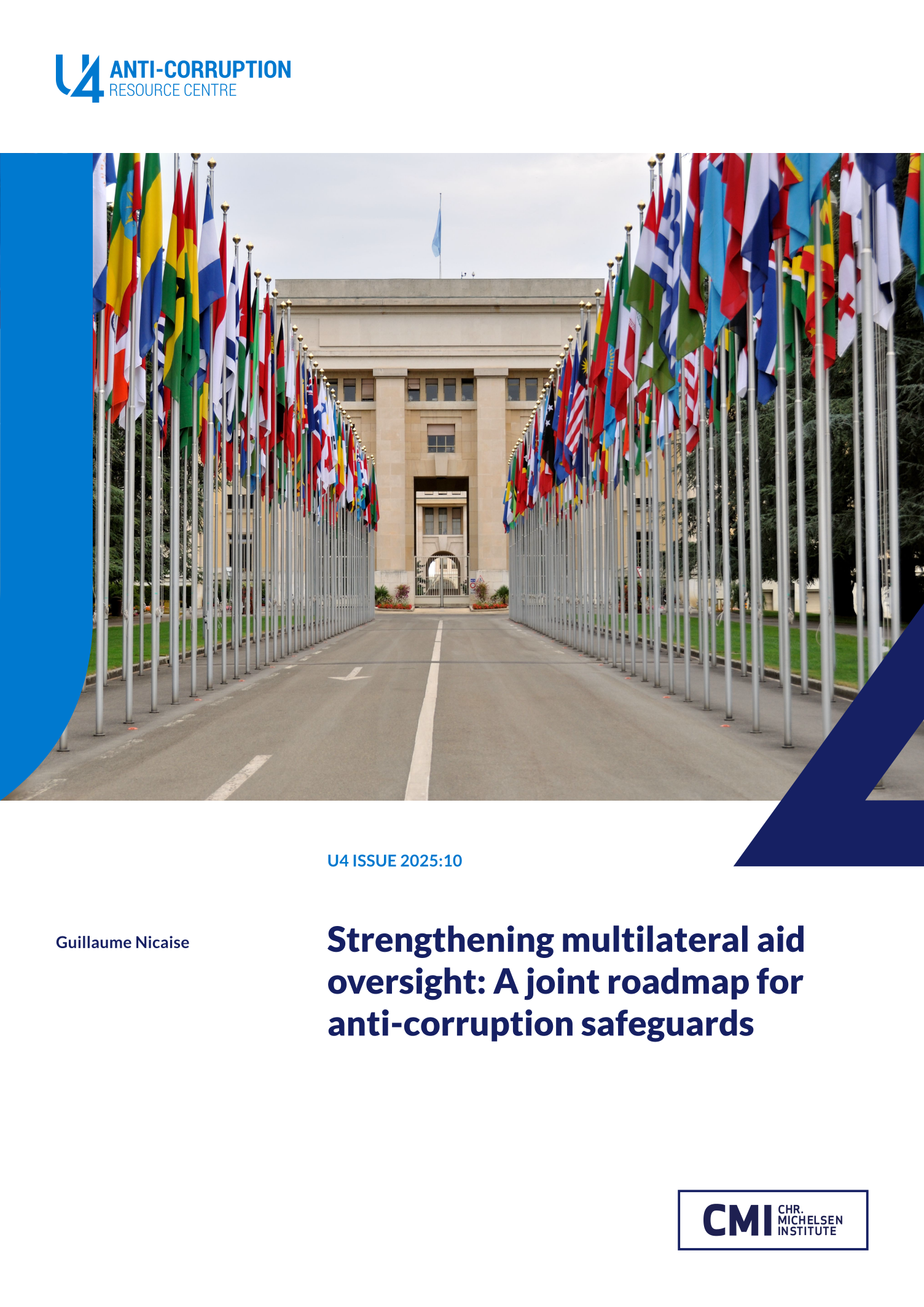Main points
- Multilateral organisations remain critical for aid delivery, but fragmented donor responsibilities and weak coordination limit effective corruption risk management.
- Donor–UN Framework agreements are a key entry point for anti-corruption, yet current provisions diverge and leave uneven safeguards.
- Drawing on U4 partners’ best practices, we advise donors on how to strengthen and harmonise their framework agreements, in particular including site access for monitoring and early notification in relation to fraud reporting.
- The precedent of reforms on sexual exploitation and abuse (SEA) shows that collective donor action, reinforced by political pressure and systematic monitoring, can overcome coordination limits.
- A phased influence strategy, building coalitions, harmonising language, broadening advocacy, and reinforcing monitoring, offers a pathway to stronger safeguards.


